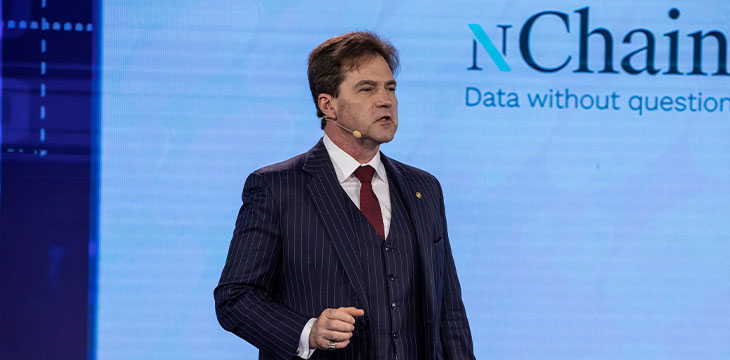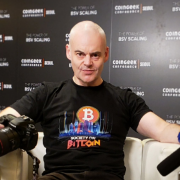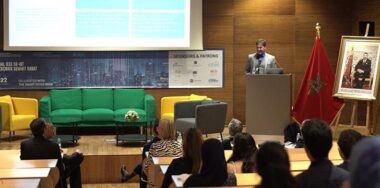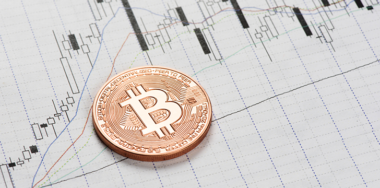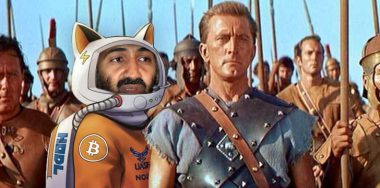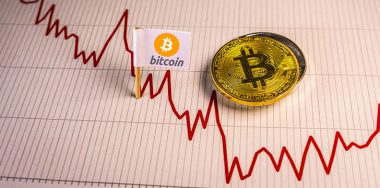The Bitcoin SV (BSV) blockchain aims for a billion transactions per second, for less than one-thousandth of a U.S. cent each—”that’s my value proposition,” said Dr. Craig S. Wright at the Global Forum 2022 / Shaping the Future conference in Muscat, Oman, in October. Introducing Bitcoin to an audience who may have only limited prior knowledge of its capabilities, Dr. Wright said the blockchain is “a provable measurement and metric of what exists and where.”
The Global Forum is billed as “the Davos of ICT” and “The International Think-Tank on the Digital Future” and has been held annually for the past 30 years. This year marks its first event in the Middle East, with the theme “Technology, Sustainability, and Humanity,” and it gathers over 250 international experts, policymakers, private and public companies and organizations, academics, and non-governmental organizations from over 30 countries.
Muscat, Oman, was recently selected as the third Arab Digital Capital. Oman is aiming to be a technological testbed to find new efficiencies in various industrial sectors, with its “Vision 2040” initiative.
Dr. Wright spoke on the opening panel with OPAL Oman Chief Executive Officer Abdul Rahman Al Yahyaei; H.E. Dr. Ali Al Shidhani from Oman’s government; Giles Babinet, Co-president of the National Digital Council, Digital Champion, France; and Jean-Yves Le Gall, former President CNES, and President of the French Space Agency. He also spoke at length later in the conference to expand on his points.
More cost-effective than anything available now
Introduced by moderator Daniel Van Lerberghe as the inventor of Bitcoin, his first remark was to assure the audience that “Bitcoin is not an anarchist system,” and that it worked within laws to create a network of digital ownership that fights crime and corruption equally, providing a transparent and permanent ledger of events in a way that’s far more cost-effective than any data service available today.
Central to Bitcoin’s technology is the idea of digital scarcity, he said. It’s about turning real-world and digital assets and linking them to technology to create a single file that can exist only once. Transferring it does not copy the file but instead moves it to a new owner. This also presents the possibility of having multiple signatures required to move a file, provable deletion of keys, and the knowledge that one copy of the file is the only one in existence.
He described his past experience as an auditor to explain how Bitcoin is based on paper ledgers, where information and changes can be added, but none may be deleted. He cleared up possible misconceptions that the answer to correcting errors was “rolling back the blockchain” or (in a swipe at BTC) that these functions could be performed on a network that only allows seven transactions a second.
Bitcoin firmly establishes property rights, he added, and people who own goods need to know they’re still there and they can get them back (if stolen or lost). But “my answer isn’t all this anarchist stuff,” he said, and such a system requires the ability for people to manage it, like governments and courts.
Oman’s digital Vision 2040
Dr. Ali Al Shidhani, Oman’s Undersecretary for Communications and Information Technology (MTCIT), opened the panel discussion with a description of his country’s digital vision. Vision 2040, he said, is an aspirational 20-year plan to put Oman “on the map “of competing countries for economic diversification and human development.” It’s a “top-down, bottom-up” collaborative approach with input from over 40,000 individuals and aims to increase efficiency and accelerate development through digitization.
This is important to Oman as it looks to diversify its economy away from reliance on natural resources, into other sectors like tourism and logistics, without ignoring key industries like mining. He said Oman was ranked by United Nations as among the top 50 on its e-government index, top 20 for cybersecurity, and top 48 for network readiness.
“We’re banking on digital transformation to increase the efficiency of those sectors,” he added.
Oman has created free development zones with physical space to test new technologies like transport and self-driving vehicles, while the government itself is working to develop new investment incentives.
Watch: Marhaba: BSV blockchain in the Middle East
New to blockchain? Check out CoinGeek’s Blockchain for Beginners section, the ultimate resource guide to learn more about blockchain technology.

